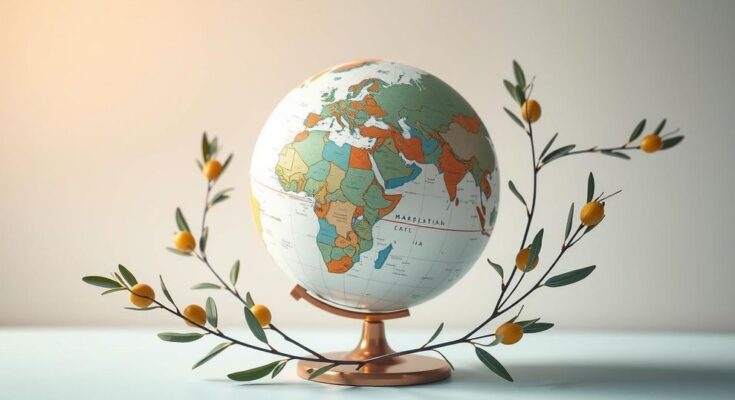Saudi Arabia, Qatar, and the UAE are emerging as key mediators in global conflicts due to their ability to communicate with multiple parties. Analysts highlight their ‘convening power’ and effective diplomacy as crucial advantages over more involved great powers. Qatar has successfully mediated key agreements, notably with the Taliban and Hamas, demonstrating its growing influence and capability in international negotiations.
The Gulf monarchies, namely Saudi Arabia, Qatar, and the United Arab Emirates (UAE), are establishing themselves as influential mediators in global conflicts. Analysts indicate that these nations have earned the trust of the international community due to their ability to engage with all parties involved in a conflict, contrasting with major powers that often take sides. As a cohesive group, the Gulf Cooperation Council (GCC) demonstrates a unique capacity for diplomacy, allowing them to facilitate dialogue.
Kristian Coates Ulrichsen from Rice University’s Baker Institute notes that the GCC’s capacity for mediation is rooted in their willingness to serve as neutral facilitators. Their “convening power” enables them to foster communications between adversaries, maintaining indirect channels until conditions favor direct engagement. This skill set positions them effectively in resolving international disputes, especially in tumultuous regions.
A prime example of this mediating role is Qatar, which has acted on behalf of the United States to host Taliban negotiations since 2012. This initiative ultimately led to the 2020 peace agreement that facilitated the withdrawal of U.S. forces from Afghanistan. Furthermore, Qatar has been a significant player in mediating between the United States, Israel, and Hamas, leveraging its longstanding relationship with the militant group to facilitate ceasefire discussions amid the ongoing conflict in Gaza since October 2023.
The Gulf monarchies are increasingly recognized for their effective mediation capabilities in global conflicts, showcasing their unique position as neutral intermediaries. Their ability to communicate with all parties involved allows them to manage complex dialogues and negotiate ceasfires, as evidenced by Qatar’s involvement with both the Taliban and Hamas. This trend underscores the growing relevance of the GCC states as vital players in international diplomacy.
Original Source: www.scmp.com




